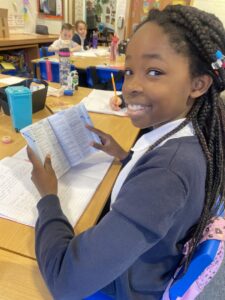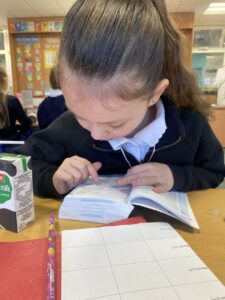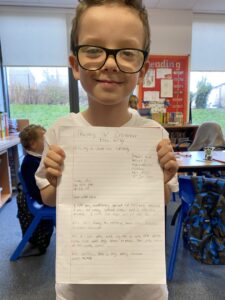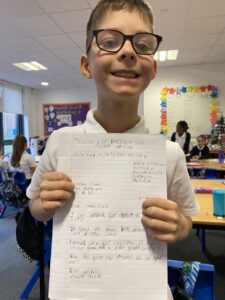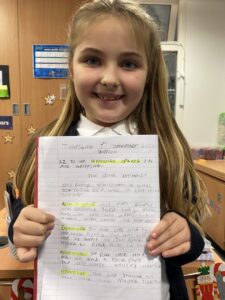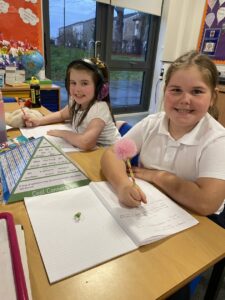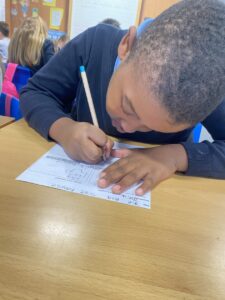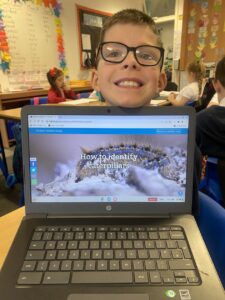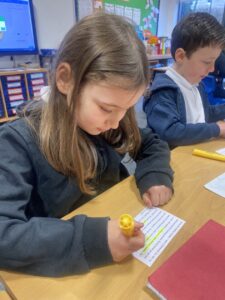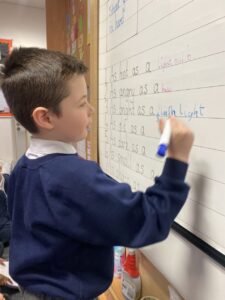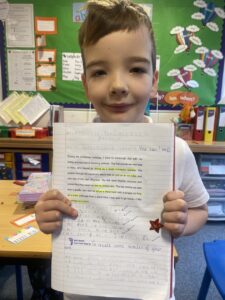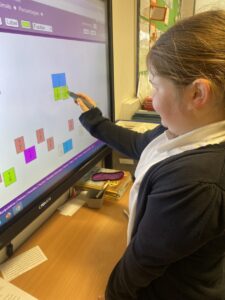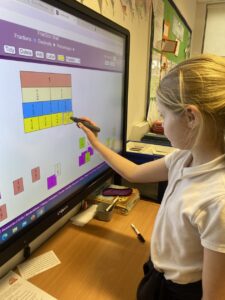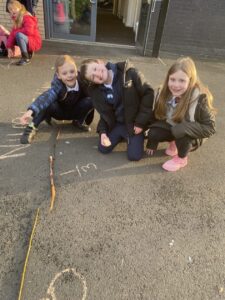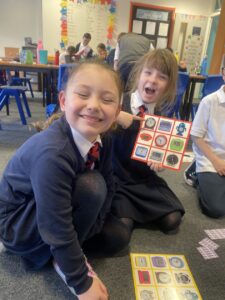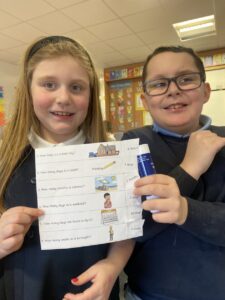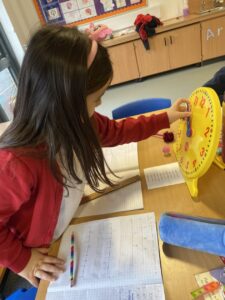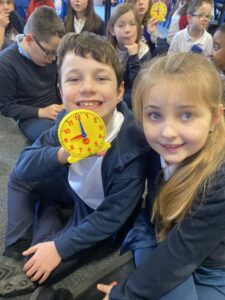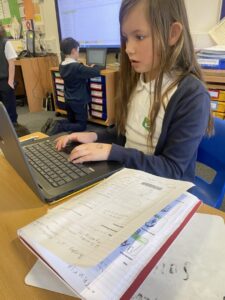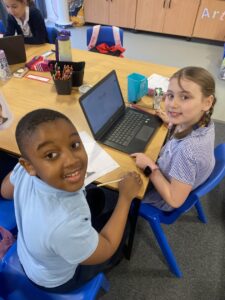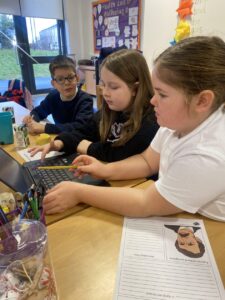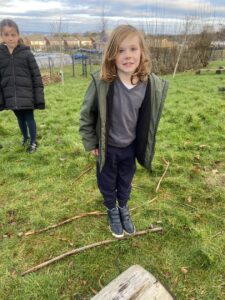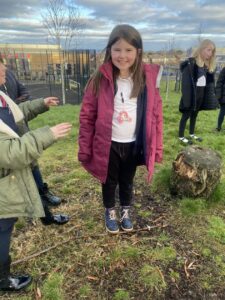P3/4 Blog – April 2024
Literacy
During reading lessons, we have been developing our understanding and application of different reading strategies. To do this, we used our class novel, Flat Stanley. We were able to make connections between the book and our own personal experiences.
“I went to Spain on a plane just like Stanley did. I think Stanley would have been as bored on the plane as I was.” – Lucy
Our non-fiction text, An Encyclopedia of Tudor Medicine, provided us with lots of information about diseases, injuries, medical tools and medicines from long ago. The encyclopedias contained contents pages, index pages, diagrams and glossaries.
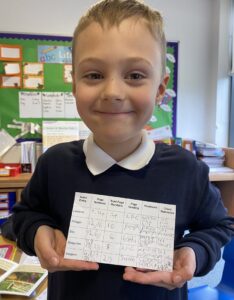
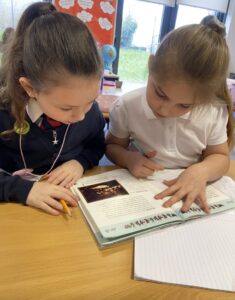
“An encyclopedia is a book (usually heavy!) that gives you lots of information about something.” – Eva S
“I found out that the Tudors used swords to amputate legs and herbs to cure illnesses.” – Leo
“The index page told us what page the thing we were looking for was on. The words are in alphabetical order. When you found the page, you saw lots of information and diagrams.” – Chester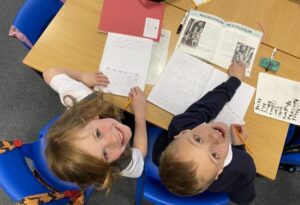
Our new novel for term 4, Emily’s Surprising Voyage, looks at adventure and friendship. We have used the title, front cover and blurb to make predictions on what might happen. Once we have finished the book, we will revisit our predictions and see how close we were.
“I’m excited to find out what happens when she gets to Australia. I think she might go on an adventure, or the ship might sink and she will be stranded.” – Enja
“They might get halfway to Australia and something happens. The blurb gave me a clue because it mentions adventures.” – Morris
During term 3, we focused on procedural and exposition writing.
“We’ve been learning how to write instructions. Instructions are important because you need to know how to build and make things in real life.” – Ava


Instructions need to include a title, a goal, a list of materials and steps written in chronological order. We enjoyed writing instructions on how to plant strawberry and tomato seeds, how to make the best hot chocolate and how to make a magical potion. To make our steps clear, we began each one with an imperative verb. Some of our favourite examples of imperative verbs included stir, mix, sprinkle, scatter, plop and dunk.
“Instead of saying ‘Please put something into the container’, you have to be as bossy as you can be.” – Daniel
“My group planted tomato seeds. It was fun.” – Eva E
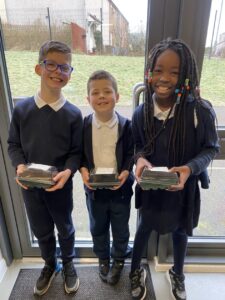
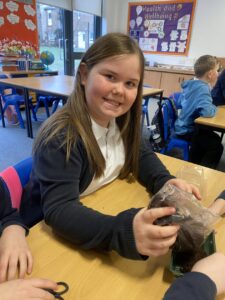
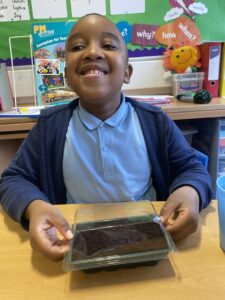
During our exposition writing lessons, we argued whether we should have homework, why everyone should visit the David Livingstone Centre and something that would improve the school. We used lots of persuasive language to make our writing effective.
“’As you can see’, ‘I am certain that’ and ‘I am sure that’ are good examples because they make you sound confident with your idea and then the reader will be persuaded to listen.” – Sophia
To make our writing even better, we have been learning about onomatopoeia, which are words that sound like the word they are describing. We discussed our favourites and made posters to help us remember them. We even found some examples in our class library books!
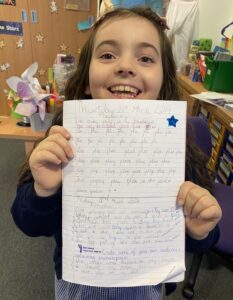
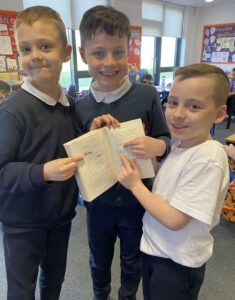
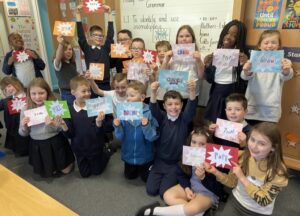
Maths
Last term, we worked on developing our addition and subtraction strategies. Our Number Talks strategies have helped us become quicker with our mental maths. We have also been practising carrying and exchanging digits when adding and subtracting big numbers. Once we had a good understanding of the strategies, we were able to apply them to even trickier numbers!
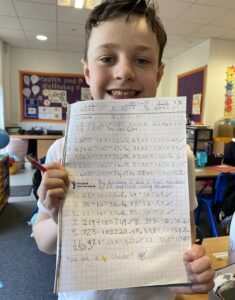
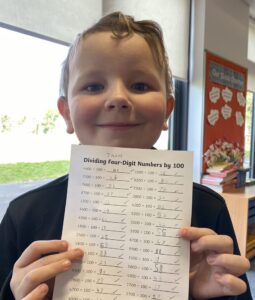
“I did some 5-digit adding challenges. If your column goes over 9, you have to carry it to the next column.” – Ollie

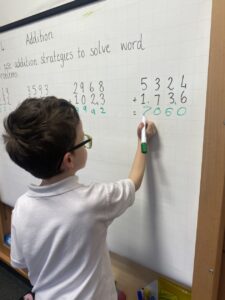
Rulers, metre sticks, trundle wheels, scales and jugs were some of the tools we used when looking at measurement. We estimated and compared the weight and length of different objects in our classroom.
“I liked using the scales best because you can put lots of different things on the tray and see which one is the heaviest.” – Sionainn
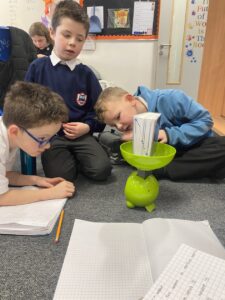
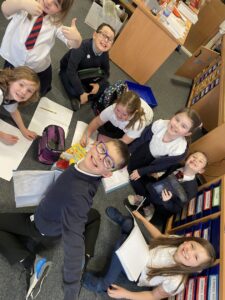
Another one of our maths topics last term was data handling with Mrs Marnie. We looked at lots of different ways to display data. We even managed to gather some of our own data and analyse the results.
“With our graphs we found out P3/4s favourite fruit and type of Easter egg. We had to come up with our own questions to find information from the graph.” – Sophia
Equations were one of our favourite maths topics last term. We now know that each equation has an equals sign in the middle and the expressions on either side have to be exactly the same.
“We solved equations where we had a shape instead of a number. We used adding, subtracting, dividing and our times tables to work out how much the shape was worth.” – Max
HWB
Badminton has proved to be one of our favourite sports. Every Monday afternoon, we went to the gym hall and warmed up before our session. Mrs Lafferty put out the nets and we began!
“We used a badminton racquet and a shuttlecock.” – Isla
“If you keep hitting the shuttlecock back and forward to your opponent it’s called a rally.” – Ava
Our whole class has continued to show great sportsmanship and enthusiasm during outdoor PE. We have been able to follow instructions, work as a team and demonstrate how to be both a good winner and loser.
“It’s important we know how to be a good loser because it’s not the end of the world if we don’t win a game.” – Joy
“It’s more important that you have fun and try your best in gym.” – Sophia
Every Monday afternoon, we learned about food safety. We know how important it is to use clean hands when preparing food and taking steps to avoid cross-contamination.
“Mrs Lafferty has been teaching us how to prepare food safely. You need to keep raw chicken and cooked chicken off the same chopping board.” – Calum
“If you mix raw and cooked chicken you might get a bug.” – Leah
STEM
“We worked together in our teams to make a protector for a teacake. We dropped our inventions off the stage and checked which ones broke and which ones stayed whole.” – Courtney
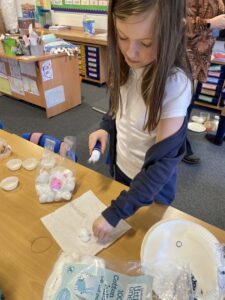
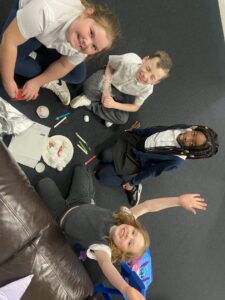
Every group showed excellent collaborative teamwork and problem-solving skills. Lots of our teacakes managed to survive the drop – our favourite part was eating them afterwards!
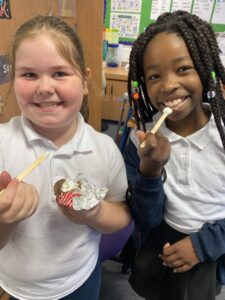
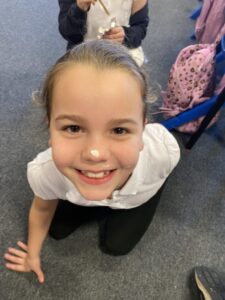
We have enjoyed becoming mini scientists during our lessons with Mrs Marnie. Our topic was electricity and forces, and we managed to build our own circuits successfully using switches, wires, batteries, lightbulbs and crocodile clips.
“When we attached our circuit together the lightbulb turned on.” – Holly
During term 4, we will begin our STEM skills-based workshops. We will have the chance to work with different materials, learn needlework skills and create our very own class Google Site.
“I’m excited to work together. I am excited to use lots of different materials to solve problems.” – Jai
IDL
Our David Livingstone topic was thoroughly enjoyed by everyone.
“We worked in partners to research lots of different things about David’s life. I learned that he was bitten by a lion and he had to fix it himself because he was the only medic in his team.” – Eva S
“I loved the David Livingstone Centre because we got to see lots of things in real life and not just on the laptop.” – Leo
“The lion was big and scary.” – Taku
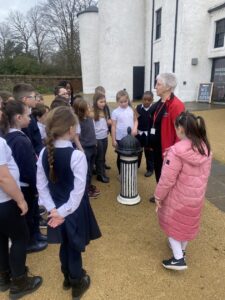
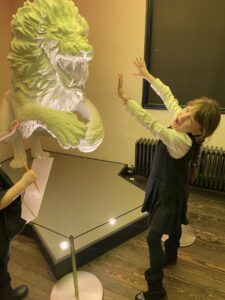
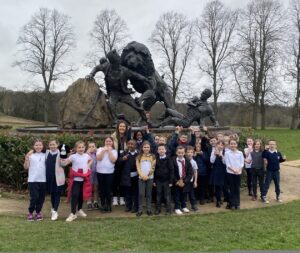
During our class trip to the David Livingstone Centre, we saw lots of animal bones and skins, a life-size model of the lion that attacked him and visited his real house that he lived in when he was a child. We couldn’t believe the differences between his house and our own!
“There was only one room for the whole family. They had two irons that his mum would heat up on the fire.” – Daniel
We can’t wait to begin our last topic of Primary 3/4, The Romans!
